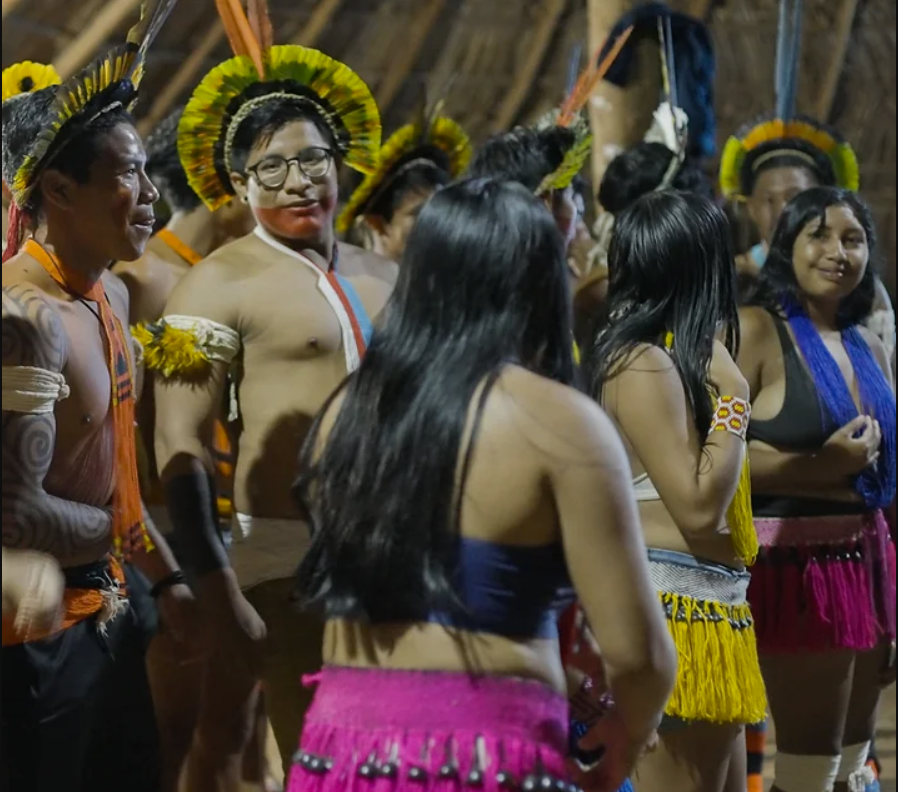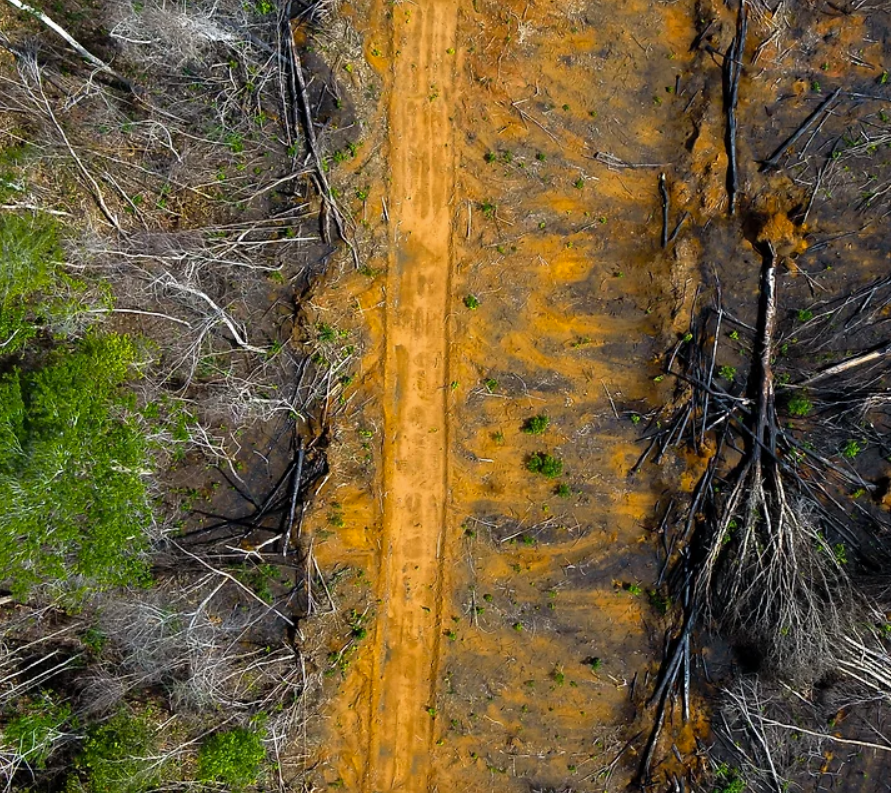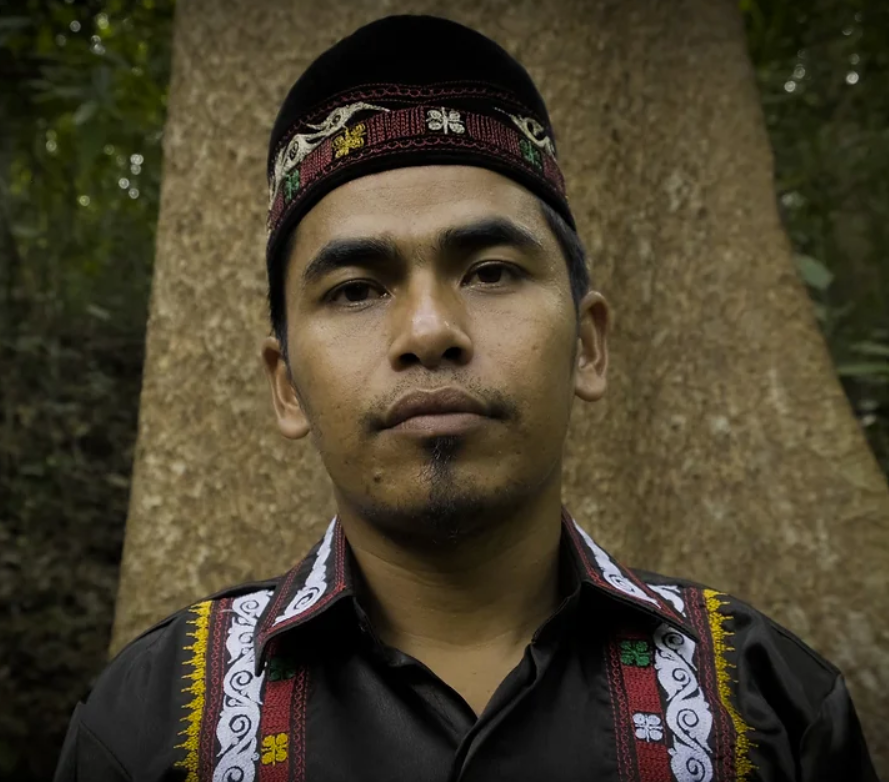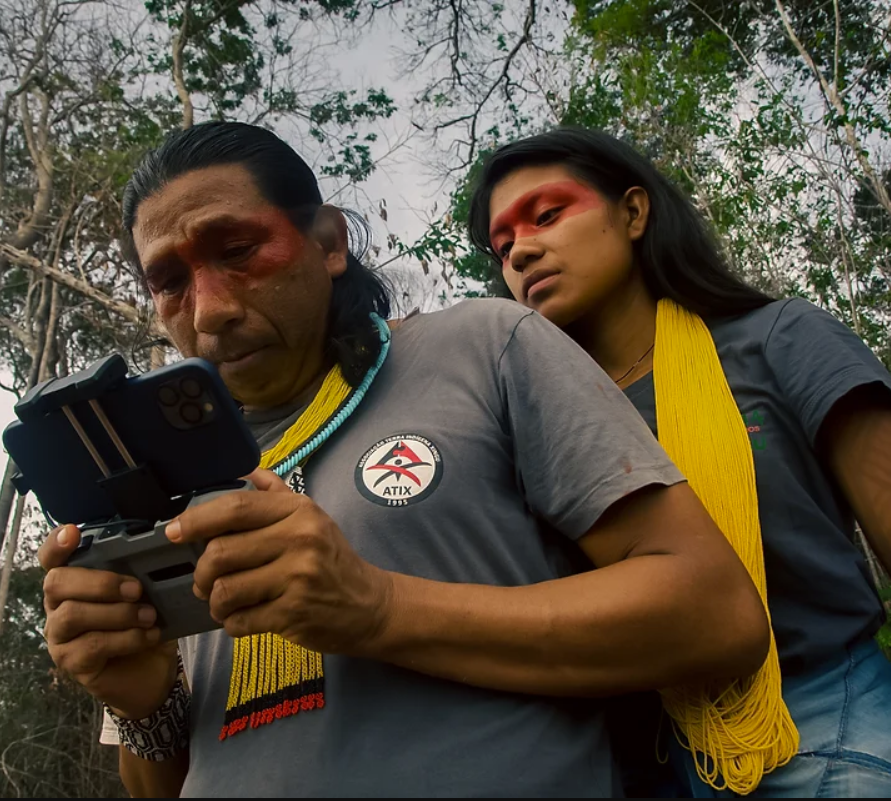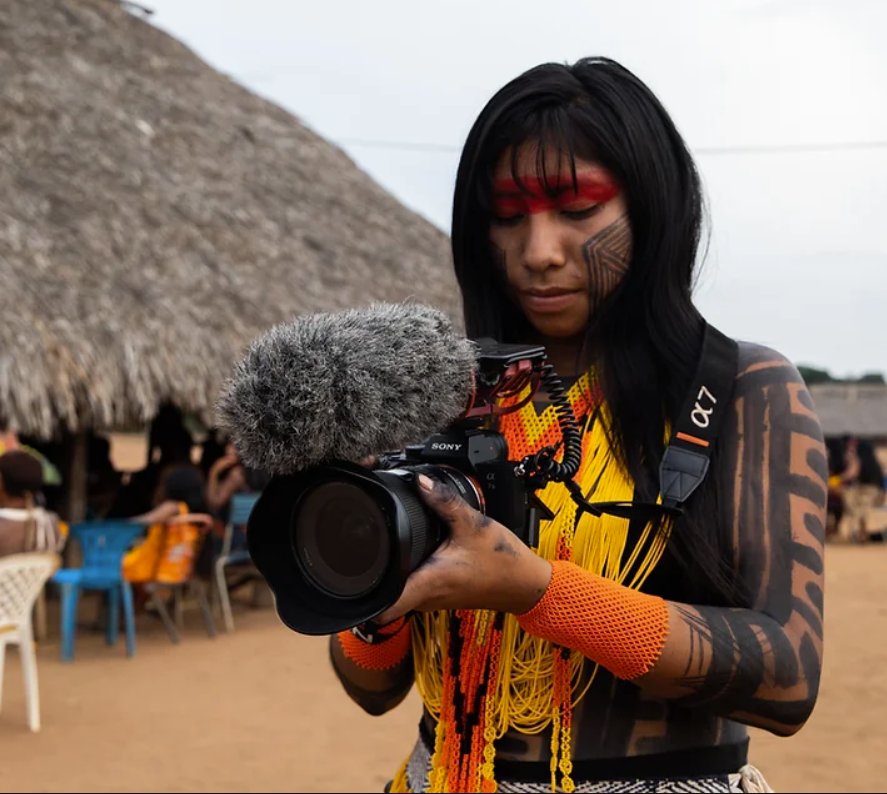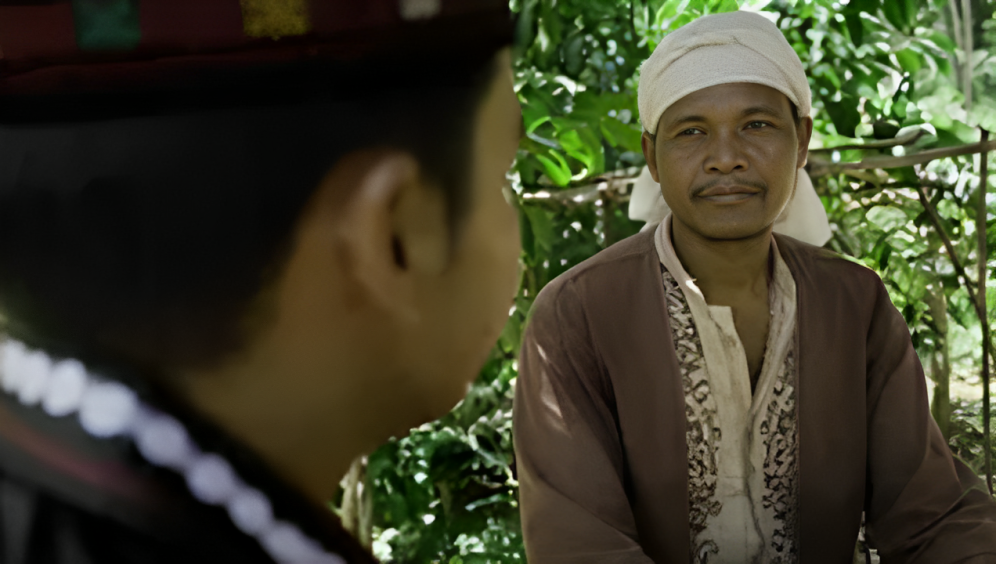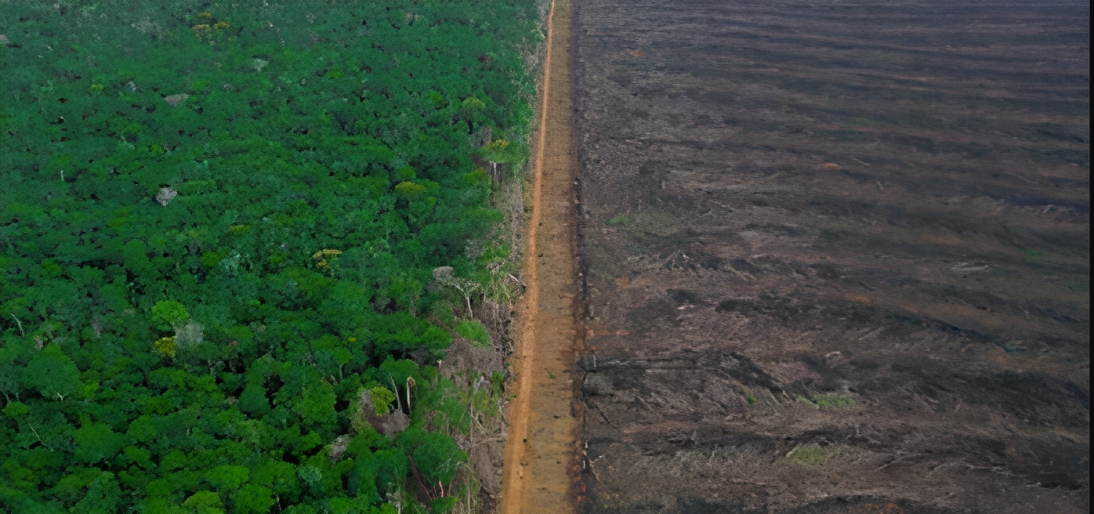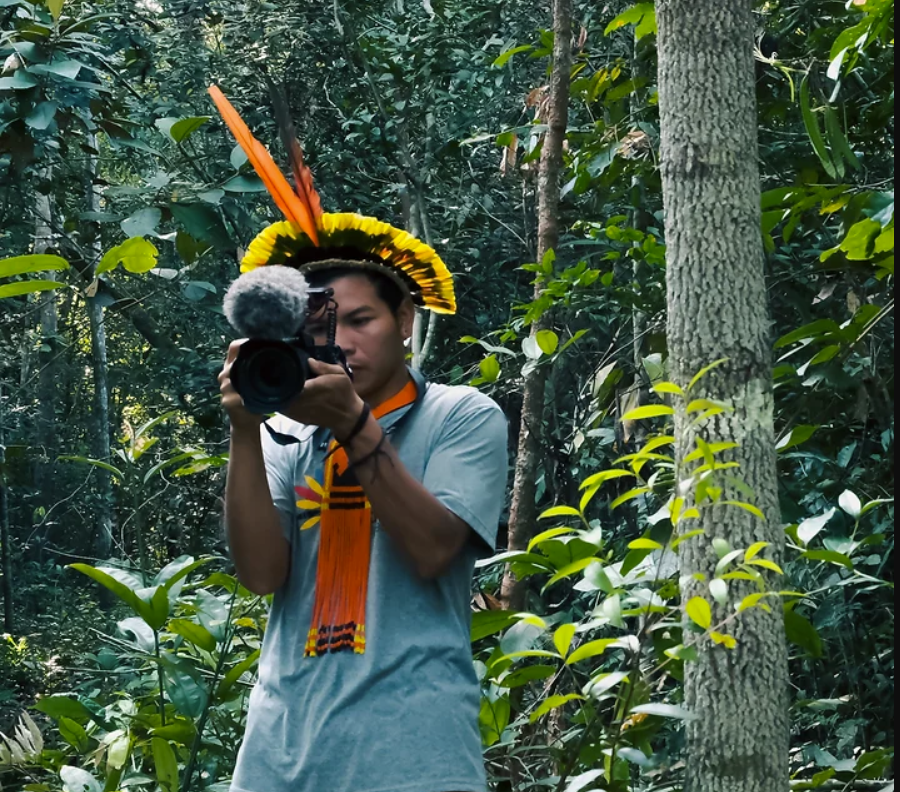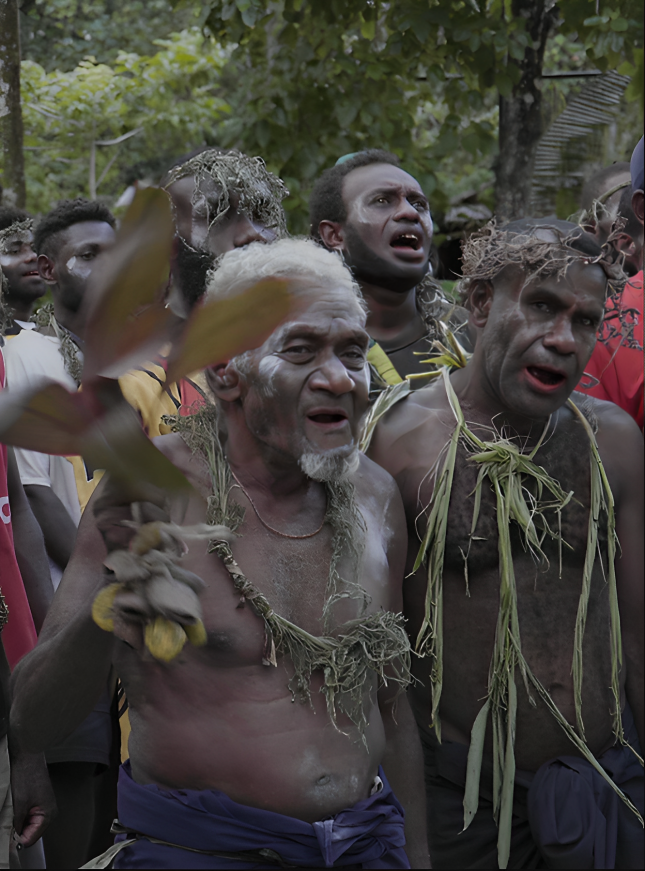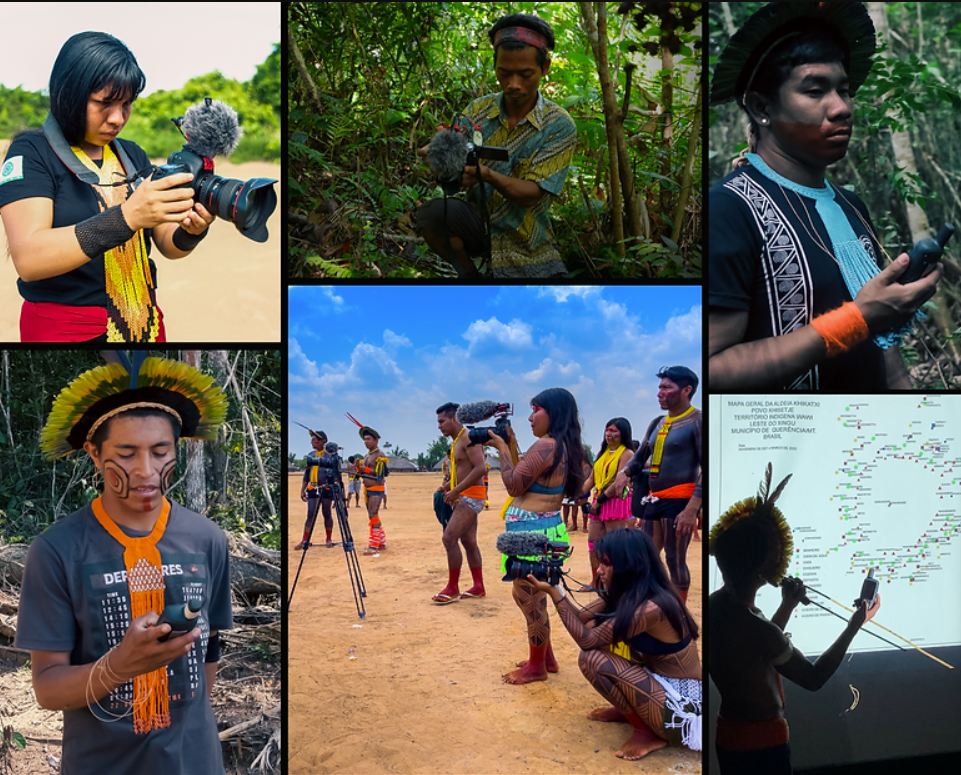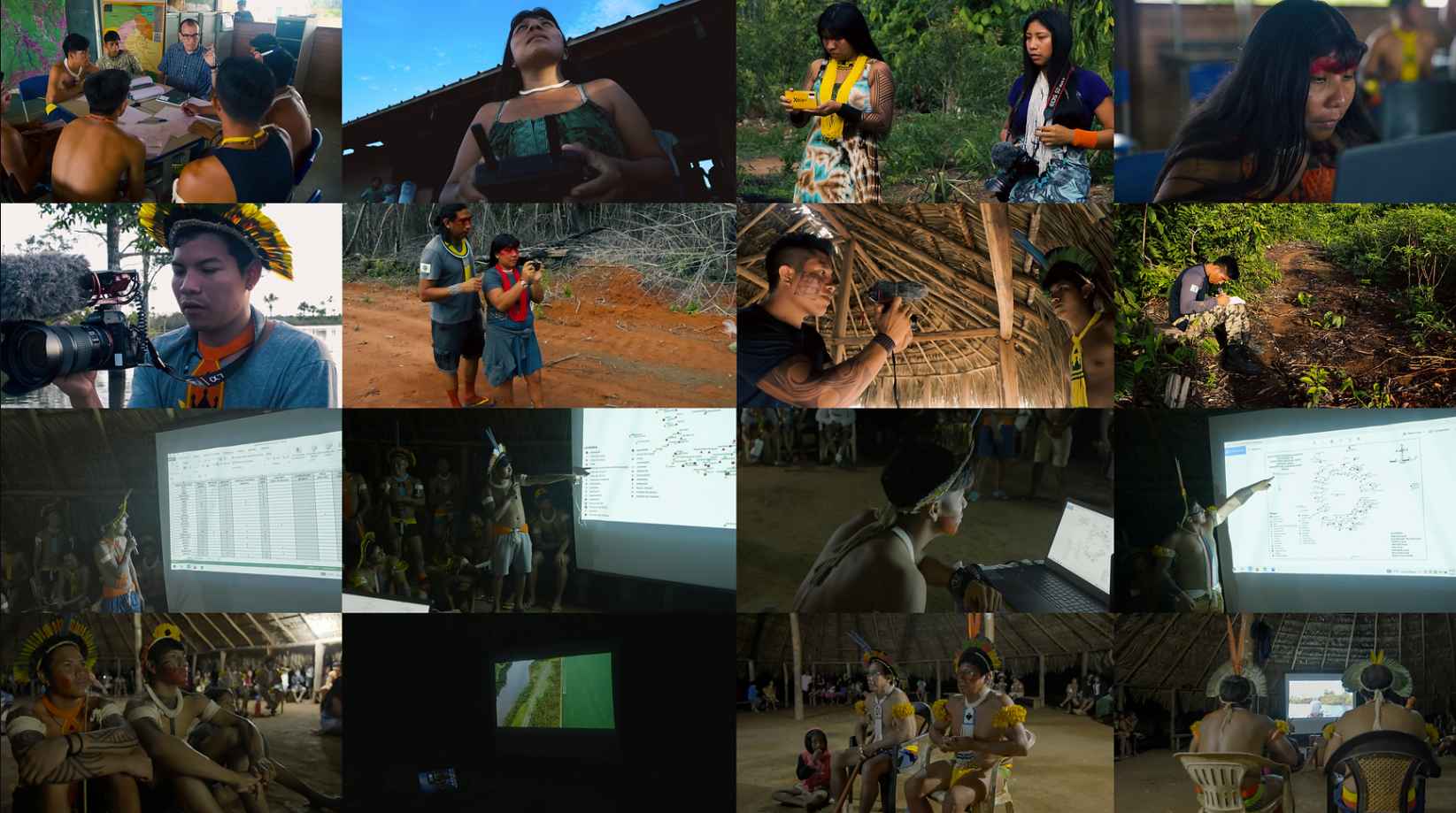Abdel mandili on participatory Storytelling for climate justice
Written by: Lucia Roggero
Abdel Mandili
As a filmmaker, activist and the founder of People's Planet Project – an organisation that trains Indigenous communities in filmmaking and geospatial mapping, giving them the tools to document the environmental injustices they face – Abdel Mandili's insights into participatory storytelling and filmmaking workshops are both inspiring and revealing. In a recent interview with us, he discussed why it's essential to empower frontline communities to tell their own stories, emphasising how such authentic storytelling can catalyse shifts towards climate justice.
Filling the Gaps in Filmmaking
Often, mainstream narratives about environmental degradation leave out the most critical voices: those of the people directly affected. Abdel reflected upon this when recalling his journey to Indonesia in 2017 where he was documenting the devastating impacts of palm oil production.
“I travelled to Indonesia to cover the stories of Indigenous communities facing massive land grabs from the palm oil industry in Kalimantan and Sumatra.” After wrapping up and returning to the Netherlands, he stayed connected with Indigenous communities and local film crews, regularly hearing updates that broke his heart. It became apparent to him that stories don’t end when filming stops. “Every time we spoke, I would hear news that there’s a new concession going on or another palm oil company had seized their territories, and these communities were left without a voice and with no power to resist those operations.” The project opened his eyes to the problems caused by exclusionary practices within the film industry – and also to the fact that as a filmmaker, he could be part of the solution.
From that moment, he turned to the very heart of the matter – indigenous communities – and asked them how creatives and filmmakers could support them in their quest to protect their forest territories and homes. “The communities made it clear that when conflict is at its highest, there’s often no filmmaker around to capture it," he continued. "That’s when I realised that they shouldn’t be dependent on external agents. If these communities are trained, they can document what's happening in real-time and tell their own stories.”
That was the genesis of People's Planet Project, which combines video technology and geospatial data to bring evidence-based storytelling into courtrooms to fight for climate justice. In Abdel’s own words, they “train these communities in filmmaking and mapping techniques and (…) leave the cameras, laptops, GPS devices and other technology with them so that they have ownership over the process and stories.” Consequently, indigenous communities can use film footage to document and provide evidence of environmental law violations in court, and thus be better equipped in the fight to preserve their land.
The Power of Participatory Storytelling
Participatory storytelling is a narrative method in which multiple individuals collaboratively shape, share, and interact with a story. It is not just a method, but a way of breaking down the barriers between 'the storyteller' and 'the subject’. “The power of participatory films is that stories are told by the people directly affected by the challenges addressed without any third-party interference or perception.” Abdel explained that when the ‘subject’ has complete agency, resulting stories are far more authentic, and therefore impactful. “Stories told in a participatory way have the capacity to change perspectives and delve into the root causes of a problem (...) when people who form part of a story are a part of their creation, over time that story represents something much closer to the truth and much more genuine.”
A common issue faced by Indigenous and non-Western communities is the experience of transient film teams that superficially engage with their stories. These teams tend to ‘parachute’ in to extract sound bites and visuals without establishing a deep connection with the subjects or understanding the essence of their stories. Abdel highlights that this pattern echoes a long-standing colonial mindset in storytelling. He emphasises that to avoid perpetuating this injustice, “it’s not enough for us to know, hear, and see on their behalf - it is them who need to be the creators of stories that dismantle colonial storytelling for the audience and for community creators.”
Participatory storytelling is therefore not only about authentic representation; it's about challenging established norms, decolonizing narratives, and tearing down systemic barriers to unleash the true potential of storytelling. “They can tell their own stories, from their own perspective, through their own lenses - a way to decolonize storytelling while creating impact driven films,” Abdel observed. Importantly, this serves as a powerful medium for fostering unity and communal identity. “We see when we visit these communities that the strength of their traditional storytelling transcends civil conflict; religion; internationalisation – and in all the unique forms that Indigenous storytelling comes in, is resilient.”
Drawing from his own experience with People’s Planet Project, Abdel shared how participatory filmmaking can have a tangible impact on the lives of Indigenous peoples. He prefaced by painting the picture of the grave dangers that their ancestral lands face, being “threatened, seized, or polluted by big multinationals.” Without agency or access to filmmaking skills or equipment, it’s all too easy for these threats to be silenced or ignored. As Abdel remarked, “the communities have long been on the wrong end of international human rights laws, they have been completely ignored, and judicial systems are not hearing them.”
Why Frontline Voices Matter for Climate Justice
As Abdel insightfully noted, “Indigenous communities preserve around 80% of the world’s biodiversity yet, media and decision making institutions silence them.” Their wisdom isn’t mere folklore. It's a profound bond with nature, cultivated over thousands of years and rich with experience. Despite their vital insights as environmental protectors, they remain sidelined from discussions that directly impact their lands and way of life.
To counteract this missed injustice, Abdel stressed that “communities at the front-line of the man-made climate and biodiversity crises must be included in how we all perceive the world; in decision making spaces; and in positions of influence.”
Storytelling and impact-driven films can play an important role in this road to justice: through media, underrepresented communities, who would otherwise remain silenced from the global conversation, can bring their message “to the forefront as many times as needed until it becomes undeniable.” Moreover, by tuning into the stories told by Indigenous communities, the rest of the world can “understand that it is the industry that has not allowed solutions, not that there is a lack of solutions.”
The urgency for solutions further heightens when one considers the looming environmental and climate crises that face our planet. As Abdel stated, “of all times, now is the most pivotal moment where frontline voices can continue to influence change on a systemic level”. To move forward, the world cannot afford to overlook solutions or have a skewed perspective – especially those from the frontlines.
Photos courtesy of People´s Planet Project
But where does the general populace miss the mark? Abdel highlighted a subtle yet profound disconnect. Although it may not be obvious to the eye, the choices people make as consumers, investors and in their daily lives, have direct effects on the lives of the most nature-reliant communities. Hence why amplifying their voices in mainstream media is not only crucial to ensure representation and diversify narratives but also illustrating the intricate interconnections that bind our world together.
Enabling these communities to speak directly to audiences also increases the possibility of building connection – bridging the empathy and awareness gaps that might exist due to perceived distances or differences. “hearing and seeing directly from the communities on the frontline who are affected by our choices can spark the necessary awareness for the global population to wake up and realise that we are not only in the middle of a human-caused mass extinction of forest territories, but the people that have preserved these biodiversity hotspots for centuries are being displaced and discriminated against.”
Photos courtesy of People´s Planet Project
At Resilient, we firmly believe that storytelling is not just a tool for communication, but fundamental to systemic change. In a time when access to the media is often restricted to those with power, and the resulting narratives often obscure the truth, initiatives like People’s Planet Project are a vital antidote and crucial to creating a more equitable world. Passing the microphone over to frontline communities and enabling them to share their stories with a wider audience can not only inspire empathy and connectedness, but also to speak truth to power. When stories are “created by and for communities in the centre of them” and backed by irrefutable scientific evidence, they become more than just storytelling. They can become a beacon of truth with potential to preserve Indigenous rights and land, and shape the future of our planet.



